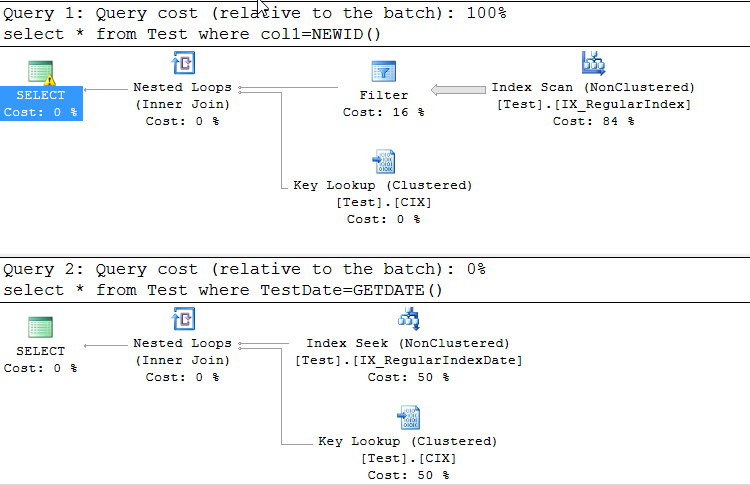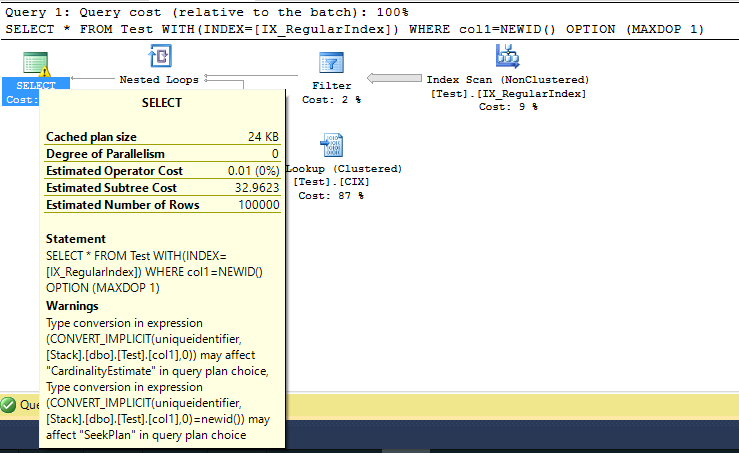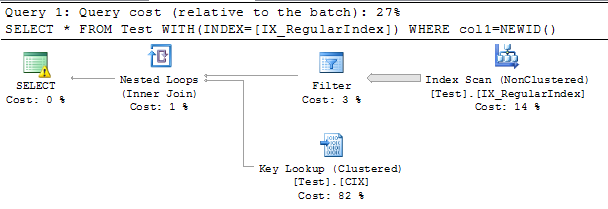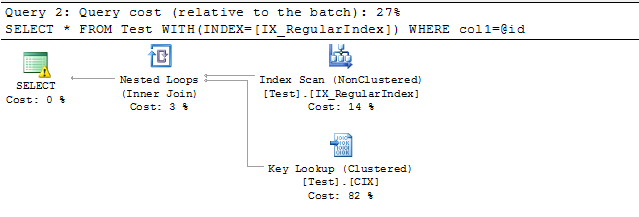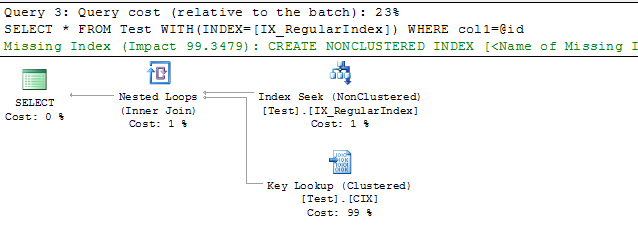I have below table:
CREATE TABLE Test
(
Id int IDENTITY(1,1) NOT NULL,
col1 varchar(37) NULL,
testDate datetime NULL
)
GO
insert Test
select null
go 700000
insert Test
select cast(NEWID() as varchar(37))
go 300000
And below indexes:
create clustered index CIX on Test(ID)
create nonclustered index IX_RegularIndex on Test(col1)
create nonclustered index IX_RegularDateIndex on Test(testDate)
When I query on my table:
SET STATISTICS IO ON
select * from Test where col1=NEWID()
select * from Test where TestDate=GETDATE()
First is making index scan whereas the second index seek. I expect that both of them must make index seek. Why does the first make index scan?

